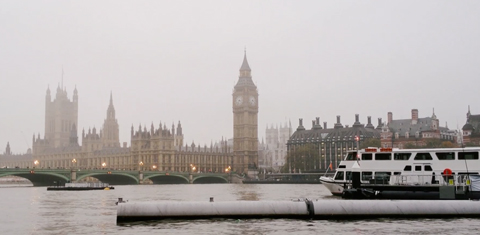Piketty and Klein to give Keynote Addresses at UCL SSEES event:
Piketty and Klein to give Keynote Addresses at UCL SSEES event:
- UCL’s School of Slavonic and East European Studies (SSEES) celebrates its centenary with three days of debate exploring how an analysis of the historical and political trajectories of both pre- and post-1989 Central and Eastern Europe may contribute to confronting challenges to the global imagination.
- The event will explore if there are any alternatives to the models of capitalism and socialism existing today or which have already failed. Can there be a Third Way? Is ‘revolution’ still a viable idea?
- Keynote speakers: Thomas Piketty and Naomi Klein.
- Other moderators and speakers include: Leszek Balverowicz, Chantal Mouffe, Dorothe Bohle.
During the 100 years of the existence of the School of Slavonic and East European Studies (SSEES) the world has seen the creation, dominance and dissolution of Communism in Russia and Eastern Europe. Neo-liberalism, Communism’s archenemy, which appeared dominant following the collapse of the European Socialist regimes, has recently suffered its own crisis of credibility. Yet articulating coherent alternatives to these entrenched conceptual categories remains stubbornly difficult.
Professor Jan Kubik, Director, UCL School of Slavonic and East European Studies says:
“As the result of the fall of communism in Eastern Europe the consideration of the relative merits of capitalism and socialism emerged as one of the central issues of our times. At the same time people of Eastern Europe, subjected to this monumental change had to carry on with their lives, often searching for alternatives to the two dominant economic systems and ideologies. There is no better place in the world to reflect on all of this than a major conference convened to celebrate UCL SSEES’s centenary.”
Expect speakers to address crucial questions including:
What do literary or cultural debates on non-conformity and alternatives to capitalism tell us?
What can government responses to the crisis teach us about the role of government in a ‘market democracy’? Can the EU be a force for change?
What do the terms ‘socialism’ and ‘capitalism’ mean today?
What do the impact of the 2008 financial crisis and rising inequality tell us about the efficiency or sustainability of capitalism?
What parts, if any, of traditional socialist critiques of capitalism remain relevant today?
What can be learned from the (comparative) study of social, political and cultural dissent, political unrest and protest movements in the SSEES region and elsewhere?
What can be learned from the study of memory and nostalgia?
Speakers at the event include: Thomas Piketty (opening keynote), the most influential writer on inequality in the world today. This keynote is sponsored by the UCL European Institute. Naomi Klein, ‘(opening keynote). one of the world’s most high-profile social activists’ (Rosie Scammell, The Observer). Leszek Balcerowicz implemented in Poland the most far-reaching programme of economic reforms (‘shock therapy’) of any of the former Soviet bloc states.
Chantal Mouffe, seminal and prolific post-Marxist theorist, major contributor to the theory of culture. Tomáš Sedláček, philosopher, historian of economic thought, economist and banker. Ilya Ponomarev, State Duma Deputy, only member of parliament who voted against the annexation of Crimea in 2014. Kwasi Kwarteng, Conservative MP for Spelthorne in Surrey since 2010. Dorothee Bohle, expert on the varieties of capitalism in post-Communist Europe. Béla Greskovits, expert on the political and economic institutions of Eastern Europe. Jacek Żakowski, one of the most influential journalists in Poland. Slavo Radošević, expert on industrial innovation and technological change with special emphasis on the countries of central and Eastern Europe. Jan Kubik, cultural and political anthropologist, expert on the sociology of protest and post-Communism and director of UCL-SSEES. Anatole Kaletsky, one of the most widely-read economic journalists in the world. Paul Mason, expert on social transformations and influential public commentator. Liam Halligan, economist, journalist and broadcaster. Mary Dejevsky, a leading London-based political journalist. László Bruszt, economic sociologist and activist.
Link to conference:
http://www.ucl.ac.uk/ssees/centenary/centenary-events/socialism-capitalism-alternatives
Date and location: 14 - 16th Dec. Friends House, Euston, London NW1 2BJ.







